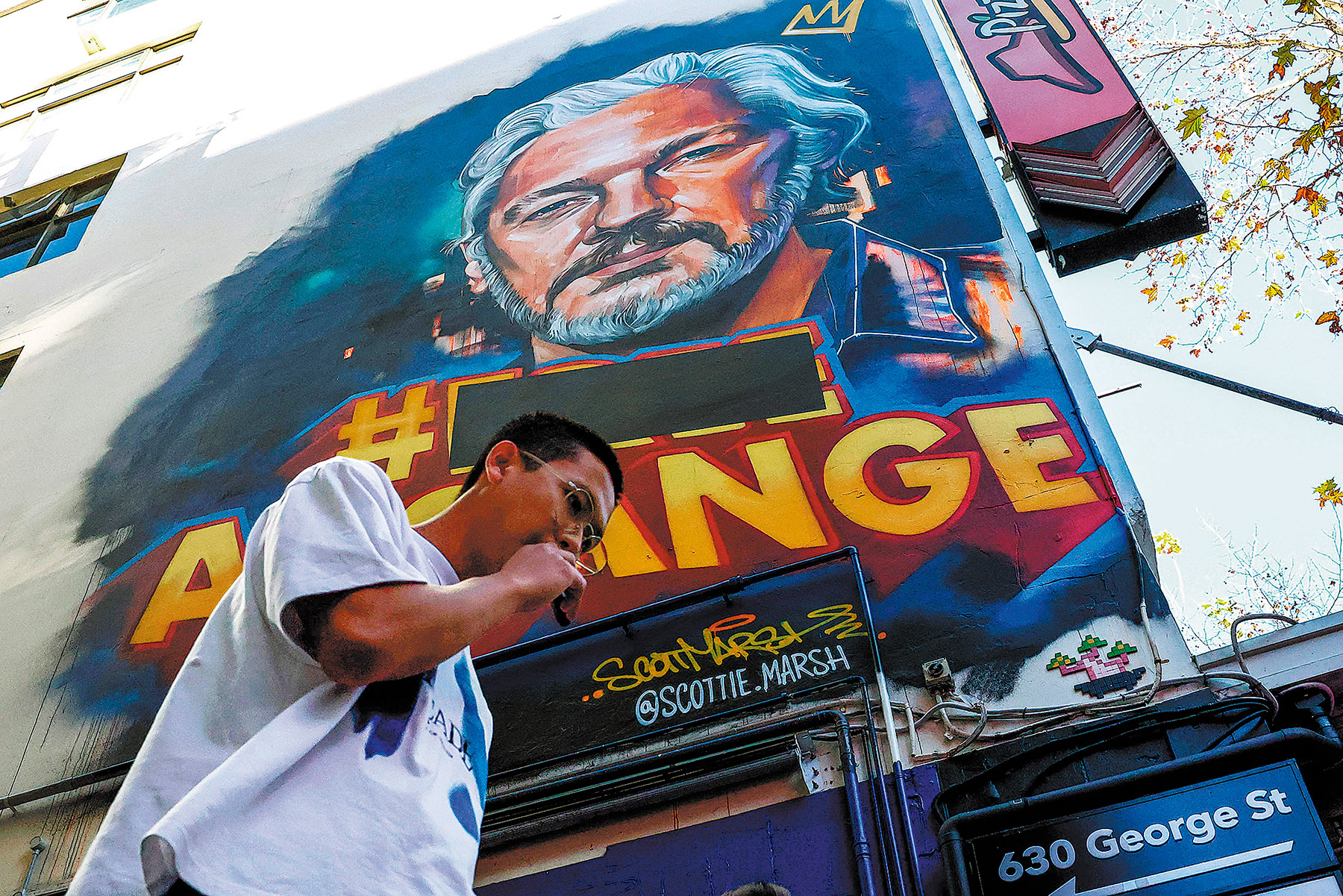Father wants an ordinary life for whistleblower who returned to Australia after long legal ordeal

Reunited with his family for the first time in 14 years, WikiLeaks founder Julian Assange will have a lot to process in the coming months but they want him to enjoy a normal life.
“All I want for Julian at the moment is for him to immerse himself in the beauty of ordinary everyday life, said Assange’s father John Shipton.
Assange waved at the media and well-wishers as he walked from a specially chartered aircraft at Canberra airport on June 26.
He embraced his father and wife Stella who had led the global fight for his release.
Dressed in a dark suit, white shirt, and tie, Assange looked reasonably fit despite spending the last five years in London’s maximum-security Belmarsh Prison, which houses inmates deemed national security risks.
Australian Prime Minister Anthony Albanese called Assange shortly after he landed, to welcome him home.
In a statement, Albanese said: “I can say when I spoke with Mr Assange tonight … he described it as a surreal and happy moment.”
Some members of parliament said the call was inappropriate as Assange is a “criminal”.
Speaking on ABC Radio earlier on June 26, Assange’s father said: “Julian needs to spend time with his wife and kids. Walk along the beach and feel the sand between his toes. Go bushwalking and feel nature. Sit on the verandah or just sit in a cafe and watch the world go by … that’s all I want for him.”
For now, Assange is expected to avoid the media and spend time with his family. He has only known his sons — Max and Gabriel — while incarcerated.
Assange had spent the last 14 years fighting extradition to the United States after releasing thousands of classified US intelligence documents revealing US human rights abuses and war crimes. He spent seven years in London’s Ecuadorian embassy seeking political asylum.
Assange’s release had been worked on by his lawyers and the US Justice Department for months.
On June 24, he was flown to Saipan, the capital of the Northern Mariana group of islands in the western Pacific, where he was charged.
The US territory was reportedly chosen as it is the smallest US district court and furthest from Washington, with Assange fearful he would be arrested if he stepped foot on the US mainland despite whatever guarantees were made.
During a three-hour hearing before Chief US District Judge Ramona V. Manglona, Assange pleaded guilty to one criminal count of conspiring under the Espionage Act to obtain and disclose classified national defense documents. Assange said he had believed the US Constitution’s First Amendment, which protects free speech, shielded his activities.
“Working as a journalist, I encouraged my source to provide information that was said to be classified in order to publish that information,” he told the court.
“I believed the First Amendment protected that activity, but I accept that it was … a violation of the espionage statute.”
As Assange accepted the conspiracy charge, the US government agreed to drop a further 18 charges, all under the Espionage Act.
“Now that he’s been charged with conspiracy, the same could happen to any of the media who accept leaks from the US government,” said former diplomat Alison Broinowski.
“And anywhere, and of any nationality. They must accept that US administrations prefer secrecy to protect their own actions, to freedom of the media to report them,” she told China Daily.
“This will even further dampen (the media’s) interest in finding and reporting the facts: for example, in Ukraine or Israel.”
Writing on the commentary website Counterpunch, Binoy Kampmark, senior lecturer at RMIT University’s School of Global, Urban, and Social Studies in Melbourne, said Assange’s plea deal makes a “mockery of arguments and effusive declarations that the arrangement is somehow a victory for press freedom”.
“It suggests the opposite: that anyone publishing US national security information by a leaker or whistleblower is imperiled. While the point was never tested in court, non-US publishers may be unable to avail themselves of the free speech protections of the First Amendment.
“The Espionage Act, for the first time in history, has been given a global, tentacular reach, made a weapon against publishers outside the United States, paving the way for future prosecutions.”
Freedom has not come cheap to Assange. According to his wife, he owes the Australian government $520,000 for the charter flight that carried him home.
That cost is expected to be met through a GoFundMe page set up by WikiLeaks in London.


